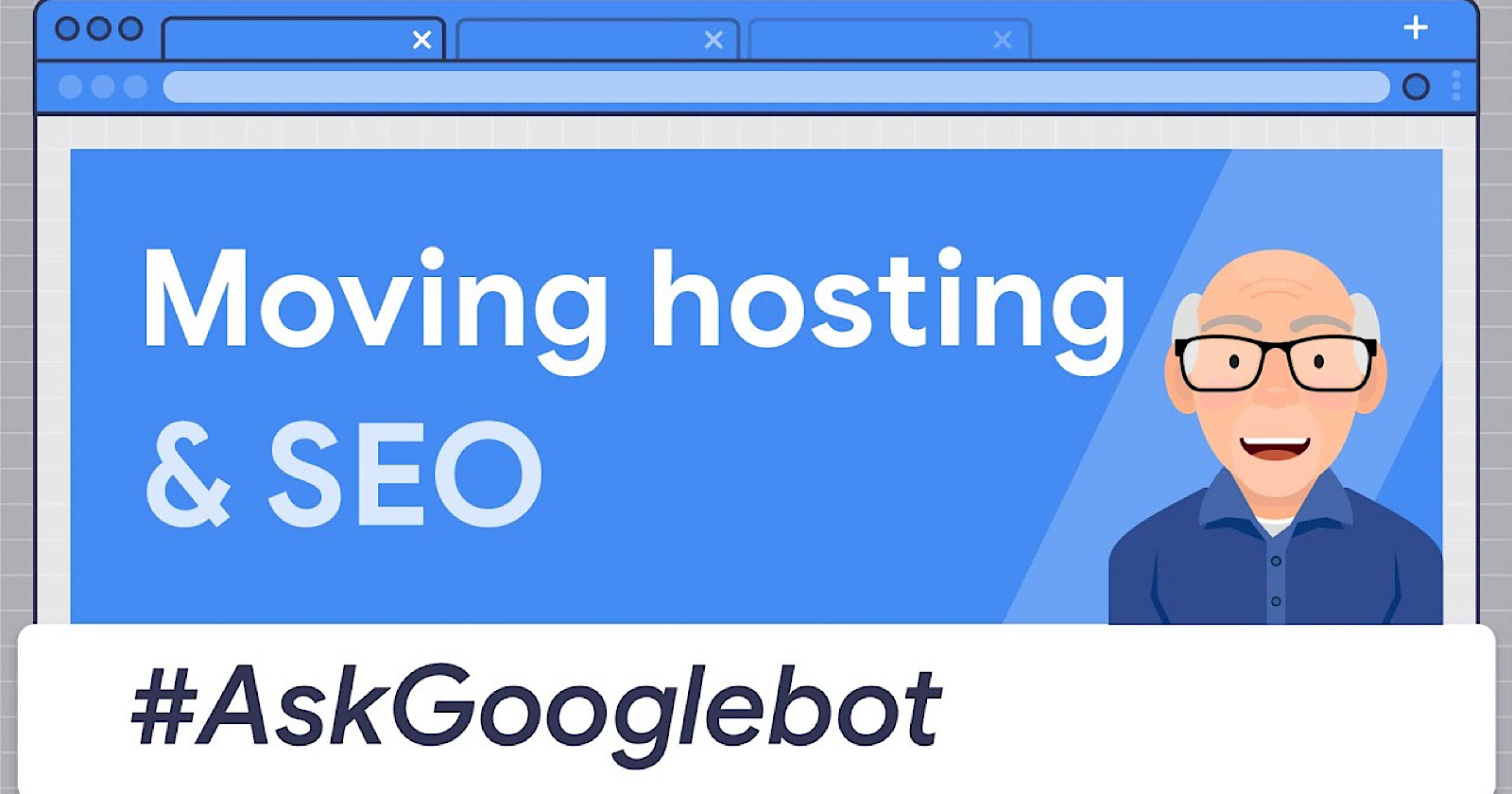Your SEO Skills Are More Valuable Than You Think! via @sejournal, @rollerblader
Don't let irrational fears about AI and outsourcing worry you about job security. Help out HR, customer support, and the C-suite with this guide. The post Your SEO Skills Are More Valuable Than You Think! appeared first on Search...

If you’re a tech SEO, content producer, link builder, or general practitioner, your skills are more than just the SEO channel.
So don’t let imposter syndrome or irrational fears about AI and outsourcing worry you about job security. Take a deep breath and relax; your job is not going anywhere.
That’s what this post is here to help with. As an SEO pro, you can grow your company, and not just through sales or customer acquisition from search engines.
This is something we do when working with clients as projects finish up and there is a lag between tasks. These ideas can help you provide value to your company or clients year-round.
Here are three teams that are outside of marketing, but could use your SEO skills to benefit your company: HR, customer support, and the C-suite.
Human Resources
Human resources has a few objectives.
Bring new talent to the company, online reputation management to keep the company looking good, and help employees find the resources they need.
All of this can use SEO skill sets.
Candidates
Go to your company’s jobs section, and if there isn’t one, put together a proposal to build one.
By creating a jobs area, you can help attract local, national, and international talent.
Your pitch can include the estimated monthly searches for “sales jobs in XY city” and an estimation of how much HR can save by bypassing ad spend on some of the job boards. And there are a few skills HR does not have that you can provide.
Deploy job posting schema to the pages. This helps the search engines know the details of the job and may help you get the featured snippets.
Use your research and copywriting skills to scrape forums and communities to find what candidates are looking for or what they want in a job. Then provide this to the HR teams if they’re not including the important items in the job descriptions.
For example, if you find a Reddit forum for specific types of programmers, look for what annoys them and the perks that are talked about the most in their workplaces.
If your company provides these perks, or you have ways to avoid the negatives, incorporate this into the content on the pages. It is something the HR teams may not have thought of.
Now your job listings are speaking to the candidates about their needs vs. your company’s wants, and your website has a resources section that can attract them in.
In many cases, when I do this with HR teams, they had no idea they could “SEO” and “CRO” (conversion rate optimization) the jobs portal.
They are not marketing experts; they manage people’s work lives. Help them bring in and convert candidates, and you’ll become their go-to resource adding to your feeling of being secure in your job.
Online Reputation Management (ORM)
HR gets tired of answering the same questions that arise from negative reviews of the company and work experiences.
And if negative articles about executives are in the top search results, this impacts their effectiveness in recruiting new employees. Build a plan to suppress and address this.
If you’ve had to do the same for negative product reviews and customer experiences, use this as an example of how you’ve handled it for non-HR-related activities and share the similarities.
Start by asking HR which websites and negative comments get brought up the most. Then present how they can be suppressed and replaced. Put together an estimated timeline for effectiveness and what is needed to accomplish the goals.
You’ll be helping to reduce their pain points while protecting your company’s reputation. It’s a big win that makes you valuable to HR, the C-suite, and finance.
Read more: What Is Online Reputation Management (ORM)?
Internal Resources
At some of the larger companies and organizations I work or have worked with, there are internal search engines.
There are databases of studies, PDFs, and research papers that need to be retrieved for sourcing, referencing, and finding the correct policy for a specific situation.
With your knowledge of search operators and metadata like meta robots, you can help make some sense of the chaos. This helps IT as well.
Create a guide on search operators, keyword tagging, and topic clustering to build an employee resource for searching the database.
Next, see if there are resources or staff that are not busy and train them on how to sort, name, and tag the files.
Assistants, support, and virtual assistants (VAs) are perfect for this.
Then create an easy-to-use guide on searching the databases and retrieving the right information each time. It could include anything from published between, author, or a specific topic depending on the search operators used.
If you want to get really creative, shoot some videos of how to do it.
Now the company can reduce the time spent trying to find a resource, gain exposure for proper documents, and reduce waste in storage costs as well as time wasted searching through irrelevant documents.
Customer Service
Many of us don’t think of customer service when navigating a corporate structure, but they are the backbone of most companies.
They help your customers when they’re upset and provide the face and voice of the organization.
Most customers don’t feel emotional about the CEO when mentioned by name (unless you’re at Apple when Steve Jobs was in charge or have a celebrity owner). Still, they do feel happy or angry with the brand, depending on the support they receive.
This is where you come in. You can take pain points away from customer support to keep them happy. They can take better care of your customers when they’re less annoyed.
Access their feedback database and look for topics, feature requests, and usability ideas to enhance your onsite copy. Then upload them to a keyword cloud or n-gram tool and find the most commonly asked questions and concerns.
You’ll now have topically relevant keywords and talking points to add to product and service descriptions which may help increase conversions and prevent returns by sharing compatibility with other devices (stopping mistake purchases), which also results in lower logistic costs.
As a bonus, you’ll discover relevant themes for blog posts or consumer messaging that can also be used in email marketing, SMS, and social media.
But why would customer service share this with you?
Because you can make their lives easier!
As an SEO expert, you get to help with the FAQs on the website and product descriptions. You can make a case as to why the content and UX need to be updated.
Talk to customer support about the top questions they’re tired of answering, and ask them what they wish was on the website so they no longer have to answer it.
You’ll help eliminate the repetitive questions they hate answering, and you could increase conversions by pre-answering consumer questions and save the company money on returns and restocking fees.
Once you have the list, look at your company’s FAQs. Is the question and answer there? If no, add it. If yes, move it up higher or create a dedicated answer in a blog post or a resource somewhere so it is more findable.
Now go a step further and make sure your customer service and company FAQs page has FAQ schema, is crawlable, and that it indexes properly.
If it is all accordions and buried, redo the code (but watch your canonicals) to get stand-alone URLs for easier reference. Even anchor links.
Last, share these resources with the customer service team and create a quick guide to the individual pages and FAQs.
Their lives become easier because they have resources to send consumers to vs. having to keep answering the same thing repeatedly.
As an added bonus, they can begin providing you with a consistent flow of new content ideas and have projects coming to your desk which may help alleviate the feeling of “what do I do now” when you’re in a waiting period for projects to be approved.
C-Suite
The C-suite is concerned with appearance in search engines, but not just from a customer and revenue standpoint. Executives worry about future planning, investors, reputation management, and how the world views both the brand and themselves.
This means their focus is on knowledge panels, online reputation management (ORM) and PR, and attracting investors. That is where you come in.
Update the about us and bios pages and see if it makes sense to deploy advanced schema properties.
Look to see who does and does not have knowledge panels and create a high-level document on how to trigger them for the C-suite that currently does not have one.
This can be used to help them gain more speaking gigs, interviews with media companies, etc.
The added benefit here is personal branding and building a positive image for company leadership. That, in turn, can build investor confidence.
And executives like to feel special.
The added attention and demand for them as a person may sit well if they like the spotlight. You’re the person who is helping them grow their brand which in turn works for corporate future planning, and you become their go-to.
From doing this, I’ve had executives reach out to me later on in their careers as they’re in new roles and hire me for projects again.
And for ORM, the positive PR and branding work you accomplish can help to lower negative results from the first page of Google, protecting the company’s image.
In Summary
If you’re worried about AI or are feeling imposter syndrome, take a step back. You have ways to show your value to your company, even if it isn’t doing customer acquisition.
More resources:
Will ChatGPT Take Your Job? Will AI Kill SEO? We Asked ChatGPT ChatGPT Examples: 5 Ways SEOs and Digital Marketers Can Use ChatGPTFeatured Image: ViDI Studio/Shutterstock

 Lynk
Lynk 






























